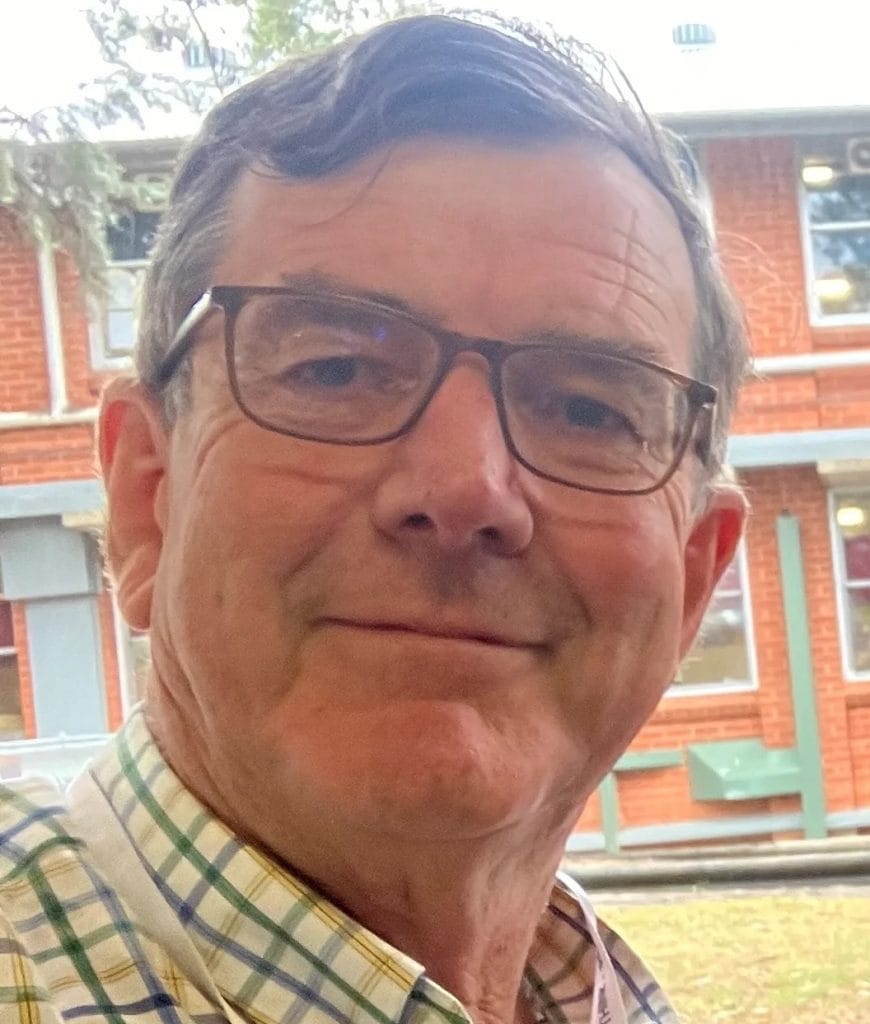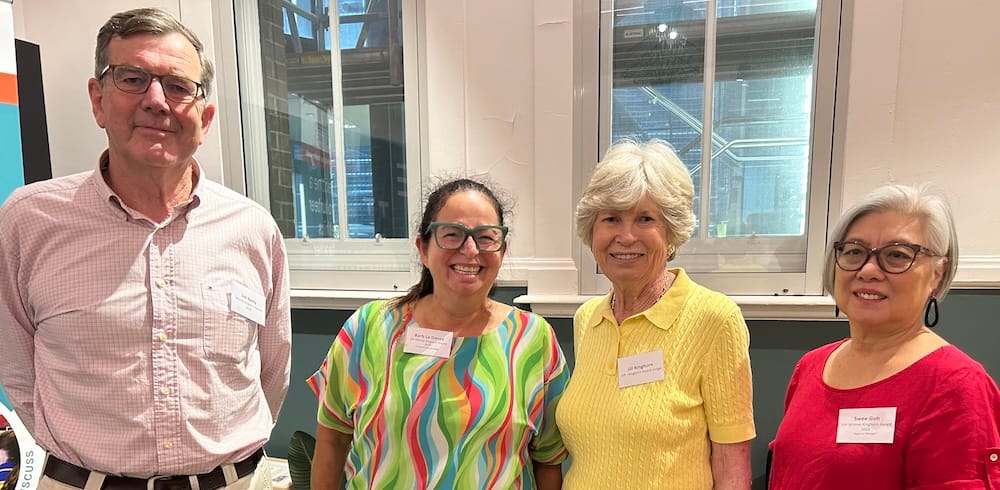We asked Jim Neely, who, alongside the Northmead Public School team, was Kinghorn Volunteer of the Year 2024, to do a Q+A for us.
Jim is embarking on his second decade of volunteering this year, having started in 2015! He has quite a spread of experience with ethics, from the school level down to the lesson level. He’s regional manager for ethics programs in seven schools in the broader Queanbeyan region in southern NSW – four in Queanbeyan as well as Bungendore, Jerrabomberra and Sutton. Between them they deliver lessons to thousands of students each week. Currently, he supports 12 ethics teachers and himself teaches five classes every week in four different schools.
When accepting the Kinghorn Award, Jim said: “As you all know, we are delivering a very worthwhile and important program and I get a lot of satisfaction out of my engagement with the students, as well as with the other volunteers – which is what keeps me motivated.
“I’d also like to acknowledge the wonderful support we receive from what I consider the ‘head office’ team: from the Help Desk, to the classroom support team, the trainers, area managers, communications team, the curriculum team…
“Your helpfulness, expertise and ongoing striving to improve the program and the volunteer experience contributes enormously to the satisfaction I get from my Primary Ethics volunteering.”

Here’s Jim’s Q+A.
How did you hear about ethics and what drew you to volunteer?
Originally I read stories in the Sydney Morning Herald about the attempts to establish Primary Ethics in NSW public primary schools and thought, ‘What a great idea’! It was obviously such an important program for children. When I heard that the program was in place at Queanbeyan Public School, I volunteered.

What have you done over your 10 years as an ethics volunteer?
I’ve continued as an ethics teacher and coordinator across that decade, but after retiring I also took on the Regional Manager role and worked to establish the program in more schools in the Queanbeyan area, plus Goulburn, which I looked after for a couple of years.
It’s very satisfying to now see many more children in the area having the opportunity to attend ethics classes.
What do you see the kids get from ethics and what do you get from it for yourself?
It’s very rewarding to see the development in the students’ ability to engage with the topics – to listen to each other and give thoughtful responses to the questions.
When a child says, ‘building on what so-and-so said’, I give an internal fist-pump! Also, when a class is going well, I feel a real sense of community develop, a level of trust, which is reflected in how the students engage with the discussions.
I also very much value working with such an inspiring bunch of people from different walks of life, many of whom I know have full lives already, managing work and children, but who also manage to fit in this commitment because of the value they place on it. I also value the sense of community that has developed between the volunteers in the different schools and the willingness to help each other out.
What’s your favourite lesson topic?
A number come to mind. With the little kids, the topic involving meerkats. This is one I know they remember. With Stage 3, I like the way the topic on Authority develops over four lessons, from a girl who shows courage at school in standing up for a disabled student, to the story of Rosa Parks and the Civil Rights movement in the US. This topic always engages the students.
Are there other rewards you weren’t expecting?
As time has gone by, I’ve come to appreciate more the broader benefits the children get out of the classes, beyond the development of their critical thinking/ethical reasoning skills, such as increased self-confidence, empowerment… For example, I recall one girl in a class who was initially very reluctant to contribute but became more confident as the year went on. When I asked in the end-of-year lesson, ‘How did you feel when you were talking and everyone else was listening?’, she said ‘Respect’.
Another reward is hearing about our impact. One school invited me and other community volunteers to an end-of-year morning tea. In speaking to the assembled group, the school’s SRE/SEE coordinator specifically mentioned our program and commented that the conversations from ethics often continued afterwards in the regular classes. That was very gratifying to hear.
Thanks Jim!